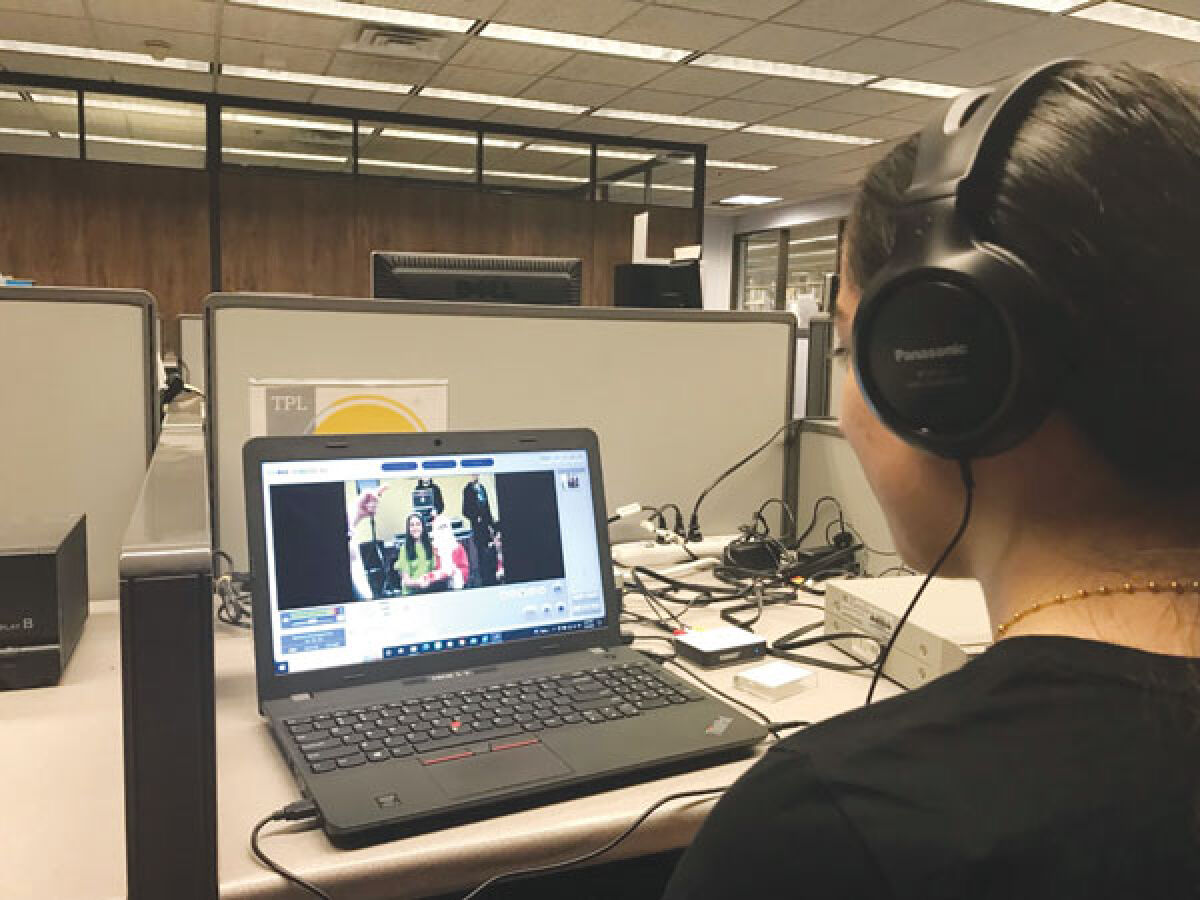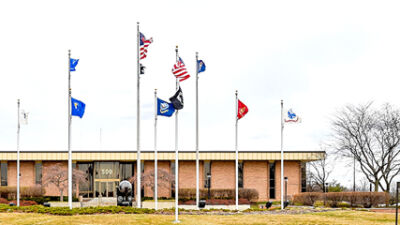TROY — As more and more media transitions to being recorded digitally, decades of photos and videos can be lost forever or become unable to be viewed due to a lack of a proper viewing device.
The Troy Public Library is trying to keep those memories alive through their Memory Lab, a free service in which older media can be transferred onto a computer and saved on flash drives or in a cloud storage system.
“It digitizes people’s memories and family memories,” explained Lauren Arnsman, the library’s head of digital services. “People might inherit this media from their parents or grandparents, but they don’t have anything to play them on. This allows them to enjoy those memories when they might not be able to otherwise.”
Although not the first library to offer such a service, Troy is trying to make sure all the proper equipment is available for people to record any kind of older media they may have.
“I know that the Baldwin Library in Birmingham has some of this equipment, but for the most part (the equipment) can be very hard to find,” Arnsman said. “Trying to transfer something without the original equipment can mean you lose a lot of quality.”
The equipment on-site includes everything from CDs to reel-to-reel film strips, all of which can be rerecorded as a digital file.
“It is saved to the computer and then they can put it on a flash drive or to a cloud server,” said Drew Heuser, the digital services librarian. “We also sell flash drives here if they don’t have something to save it to. They cost $6. We have a Kodak negative scanner. We can transfer VHS, cassette tapes, any kind of camcorder format, such as VHS-C and mini-DV, 8 mm and reel-to-reel.”
The Memory Lab was created in 2020, right before the COVID-19 pandemic shut the library down for several months. Now the library staff are trying to remind residents that this resource is available. They said that, so far, the Memory Lab has been a hit.
“We thought it would be something to offer to patrons. We get a lot of people asking for services like this. Not many libraries in the area have anything like this, so we wanted to fill that gap,” said Arnsman. “Patrons love it. It’s very popular. We recently increased our time frame for each Memory Lab user from two-hour blocks to four-hour blocks. This was from patron suggestions. Some media can only be copied in real time, so you need the extra time.”
Heuser said that the process is very easy, library staff can assist as needed and the service is free.
“It’s of no cost. Residents can sign up ahead of time but nonresidents are on a first come, first served basis,” he said. “When a patron comes in to use the Memory Lab, we would set them up at a station with a laptop. It would then depend on what kind of media they have. It’s self-serve, and they can then transfer over whatever they bring in.”
“If they are a Troy resident, they can book the time up to two weeks in advance on our website,” added Arnsman. “Anyone who isn’t a Troy resident can use it on a walk-in basis. There is no cost. Everyone in our digital services department can help. It’s a self-serve service, but there are instructions there, and we can help if they have any questions.”
Heuser said that a service like this is becoming more and more desired by members of the public as physical media can be lost or degrade over time.
“The incentive is that we all have so much of this older, outdated media, they can be difficult to access now,” he remarked. “No one has reel-to-reel players now. Now this equipment is available to preserve those memories.”
 Publication select ▼
Publication select ▼




















